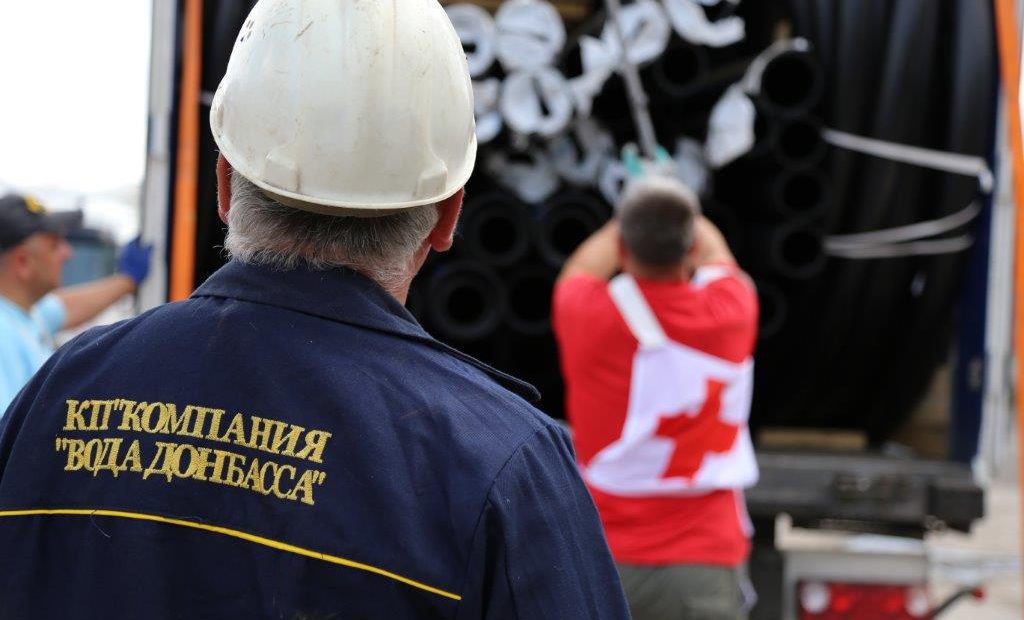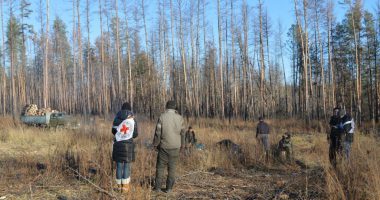Following a new localized spike in hostilities in eastern Ukraine, workers manning a major water pumping station could not stay on duty, putting hundreds of thousands of people at risk of being cut off from water and basic services. Dozens of explosive ordnance fell in the compound of the 1st Lift Pumping Station on the south Donbas water pipeline, between Vasilevka and Kruta Balka earlier this week. The staff of Voda Donbassa was forced to take refuge and eventually to leave the premises, putting the pumping station out of action. As a result, around 350,000 people have been disconnected from the water supply. The station has not reopened due to a lack of security guarantees that would allow the workers to return in safety to the plant.
“This is only the latest of many incidents on both sides of the contact line that have left towns, villages and rural communities without essential water, gas or power for days or weeks on end”, said Alain Aeschlimann, the head of the ICRC Delegation in Ukraine.
For instance, since the beginning of the year, the Donetsk Filtration Station was out of operation for 45 days due to damage caused by the fighting. This affected the water supply for civilians on both sides of the contact line. In the same area, one of the south Donbas pipelines has been out of order for more than four months, leaving nearly 800,000 people extremely vulnerable. Repairs to the pipeline are urgently needed.
The safety of civilian infrastructure providing essential services is a cornerstone of International Humanitarian Law. Parties to a conflict must respect the civilian nature of essential infrastructure and services. Placing military positions near such infrastructure makes it liable to attack.
All parties must take all feasible measures to guarantee the safety and protection of these facilities. The ICRC reiterates its call for the establishment of safety zones around the Donetsk Filtration Station, the 1st Lift Station and the south Donbass pipeline as well as other essential infrastructure at risk in eastern Ukraine.
The creation of a safety zone must be agreed by all parties either directly or through a neutral intermediary. The area designated as a safety zone should be clearly defined and marked. In order to maintain its protected status, military personnel and equipment should not be present inside the area. All military activities that could put its protection at risk should cease. The ICRC stands ready to act as a neutral intermediary between the concerned sides to facilitate the creation of safety zones.



